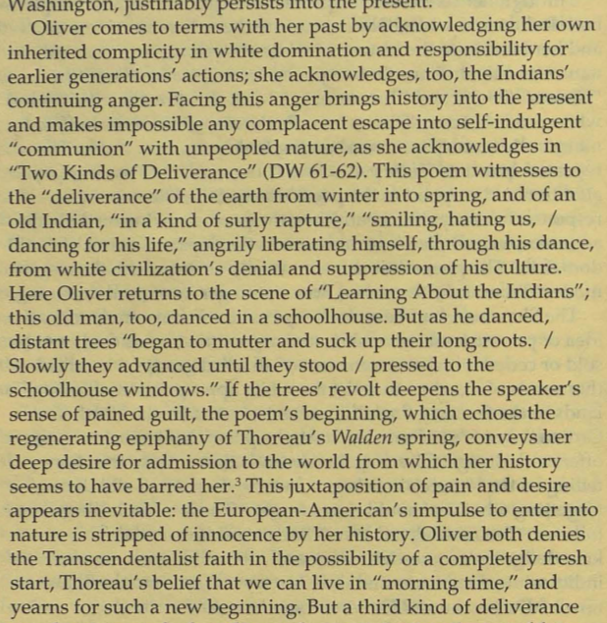3.2 miles
turkey hollow
54 degrees
Wow, what a beautiful morning! A bright blue sky, not much wind, warm air, few people. Ran above the river and made sure to notice it today. Pale blue, almost white or light gray in parts. Flat, no sparkle. Calm. No rowers. Heard a kid below me as I ran above the oak savanna. Heard some more kids at the Dowling school playground. Managed to take my bright orange sweatshirt off and tie it around my waist while I was running. Didn’t see any turkeys but heard a pileated woodpecker and a few black-capped chickadees.
Tried to breathe mostly through my nose while I was running but it was hard. Sometimes I could do it, other times I could breathe in through my nose, out through my mouth, but often I had to resort to all mouth breathing. Is this because of my left nostril plugging up a lot? I’m reading Breath by James Nestor right now and he’s a very big proponent of nose over mouth breathing. Is it good for running? I decided to google it and discovered that it’s not that simple; sometimes runners need to breathe through their mouths, especially during faster runs, to ensure they get enough oxygen. I’m glad I checked; now I won’t worry as much if/when I mouth breathe while running. This is a helpful resource: How To Breathe While Running
While I was running, I tried to think some more about Mary Oliver and her messy and irresolvable tensions around poetry, words, language, being human, the Self, the World, and nature. One question I kept asking myself is: why am I spending so much time on these tensions?
Before I went out for my run, I took the following notes:
Mary Oliver and the Bedeviled Human
from The Meadow/Marie Howe
Bedeviled,
human, your plight, in waking, is to choose from the words
that even now sleep on your tongue, and to know that tangled
among them and terribly new is the sentence that could change your life.
Reading MO, I’ve noticed, and have been trying to articulate, a tension in her poems between the I, the World, Nature, God, Eternity, Work. This tension seems to take many forms and MO imagines it to be endlessly intriguing and part of the process of living. Never to be resolved but to be puzzled over. One element of this tension involves the plight of the human—born to doubt and argue and question what it all means, to be both brought closer to and further away from the world by language and the power and beauty of words, which are never as powerful or beautiful as the world itself. To want a name and a useful place, to claim a life, but also to belong to the world, to be “less yourself than part of everything.”
from “Work” in The Leaf and the Cloud
3.
Would it be better to sit in silence?
To think everything, to feel everything, to say nothing?
This is the way of the orange gourd.
This is the habit of the rock in the river, over which
the water pours all night and all day.
But the nature of man is not the nature of silence.
Words are the thunders of the mind.
Words are the refinement of the flesh.
Words are the responses to the thousand curvaceous moments—
we just manage it—
sweet and electric, words flow from the brain
and out the gate of the mouth.
We make books of them, out of hesitations and grammar.
We are slow, and choosy.
This is the world.
Words can help us to remember a beloved but long dead dog:
And now she’s nothing
except for mornings when I take a handful of words
and throw them into the air
so that she dashes up again out of the darkness,
and console us in our anger and grief:
and what could be more comforting than to fold grief
like a blanket—
to fold anger like a blanket,
with neat corners—
to put them into a box of words?
Words can keep us company, offer exits out of difficult spaces, open thousands of doors, give us a place in the world. But, they can also separate us from the world, feeding our hubris:
Understand from the first this certainty. Butterflies don’t write books, entierh do lilies or violets. Which doesn’t mean they don’t know, in their own way, what they are. That they don’t know they are alive—that they don’t feel, that action upon which all consciousness sits, lightly or heavily. Humility is the prize of the leaf-world. Vainglory is the bane of us, the humans.
Upstream/Mary Oliver
or our constant doubts:
from “Riprap” in The Leaf and the Cloud
2.
In my mind, the arguers never stop—
the skeptic and the amazed—
the general and the particular, in their
uneasy relationship.
…
O what is beauty
that I should be up at
four A.M. trying to arrange this
thick song?
5.
And, anyway, what is thought
but elaborating, and organizing?
What is thought
but doubting and crying out?
From The Book of Time in The Leaf and the Cloud
5.
What is my name,
o what is my name
that I may offer it back
to the beautiful world?
from “Gravel” in The Leaf and the Cloud
6.
…
It is our nature not only to see
that the world is beautiful
but to stand in the dark, under the stars,
or at noon, in the rainfall of light,
frenzied,
wringing our hands,
half-mad, saying over and over:
what does it mean, that the world is beautiful—
what does it mean?


